QuickRead - Book Summaries
QuickRead AS
FREE - In Google Play
Nature & Environment
From zoological explorations of animal behavior to compelling exposes of environmental issues, our nature and environment section has something for everybody!
Sort By:
alphabetically
most recent
most popular
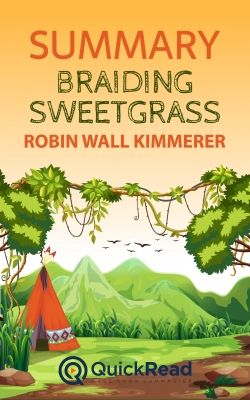
Robin Wall Kimmerer
What Native American traditions can teach us about life and climate change.
There’s no doubt about it: climate change is one of the most pressing issues of the modern age. But as the greatest modern minds search for the solution, Robin Wall Kimmerer posits that we should turn to an older source of wisdom: the traditional teachings of indigenous peoples. Because Native American tribes followed sustainable living practices long before we attempted to implement them, the author posits that we can learn a great deal from their traditions. Braiding Sweetgrass (2013) is an anthology of everything the author has learned through her experiences with indigenous tribes.
5 minutes
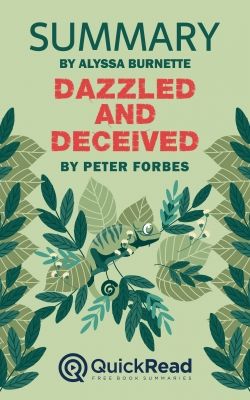
Peter Forbes
Learn about nature’s masters of disguise.
Dazzled and Deceived (2009) is an exploration of camouflage. Written by scientist and conservationist Peter Forbes, Dazzled and Deceived investigates the role of camouflage in nature to learn how predators and prey alike disguise themselves to further their agenda. Through this study of animal behavior, Forbes outlines what humans can learn from the animal kingdom and charts the evolution of camouflage as a tool in art and war.
14 minutes
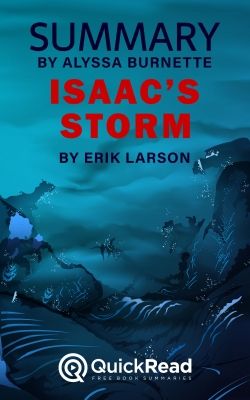
Erik Larson
Learn about the deadly hurricane that devastated Texas in 1900.
Isaac’s Storm (1999) is the story of the deadliest hurricane in American history. It’s the story of a storm that destroyed thousands of lives. It’s also the story of one man, the weather, and the development of the United States Army’s Weather Bureau. Written for anyone who is fascinated by history or extreme weather, Isaac’s Storm captures the imagination through its vivid retelling of the fatal events that took place on one September day in Galveston Texas, 1900.
18 minutes
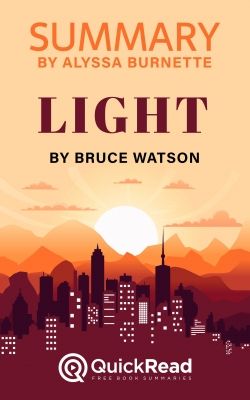
Bruce Watson
Learn about the history of light.
Light: we associate it with power, purity, innocence, and hope. We use it to represent the forces of good. We measure things by its speed. But have you ever thought about the origins and impacts of light? Light (2016) explores the power, function, and history of the thing that truly lights up our world.
15 minutes
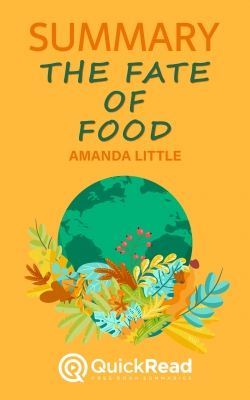
Amanda Little
What We’ll Eat in a Bigger, Hotter, Smarter World
We’re all familiar with climate change, right? When we hear the term, we think about the polar ice caps and global warming. But climate models also show that global crop production will decline every decade for the rest of this century because of drought, heat, and flooding. Not only that, but the world’s population is expected to grow another 30 percent in the next 50 years. How can we expect to feed nine billion people sustainably in the coming decades? For the past three years, award-winning journalist Amanda Little has attempted to answer this question. Traveling from Wisconsin to Shanghai, Norway, and even Ethiopia, Little has been researching the race to reinvent the global food system. The challenge, however, is twofold: We must solve the existing problems of industrial agriculture while also preparing for the pressures ahead. Throughout her research, Little asked the tough questions, like “Can GMOs actually be good for the environment- and for us?” “Are we facing the end of animal meat?” and “How can a clean, climate-resilient food supply become accessible to all?” Through The Fate of Food, you’ll learn all this and more. As you read, you’ll learn how fruit crops are being affected the most, how to grow crops indoors without soil, and how you can limit food waste by buying frozen instead of fresh.
18 minutes
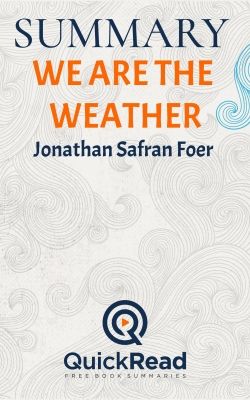
Jonathan Safran Foer
An informational guide on how harmful the animal industry is to the environment, and that saving the planet begins at breakfast.
In We Are The Weather, Jonathan Safran Foer discusses the similarities between climate change and World War II. Similar to the sacrifices Americans made in the days we fought against the axis powers, it’s time to make a sacrifice in the fight against global warming. We are fighting a losing battle, but saving the planet can begin at breakfast. Foer introduces the idea that changing our diet can save the Earth. With animal industry farms making up 24% of harmful greenhouse gas emissions right behind fossil fuel emissions, you can begin to do your part by reducing your consumption of animal products and reducing your carbon footprint significantly. The war can only be won if everyone does their part, our planet needs both big and small sacrifices to survive, so take a small step in saving the planet and end the fight with global warming.
14 minutes
- ← Prev
- 0
- Next →